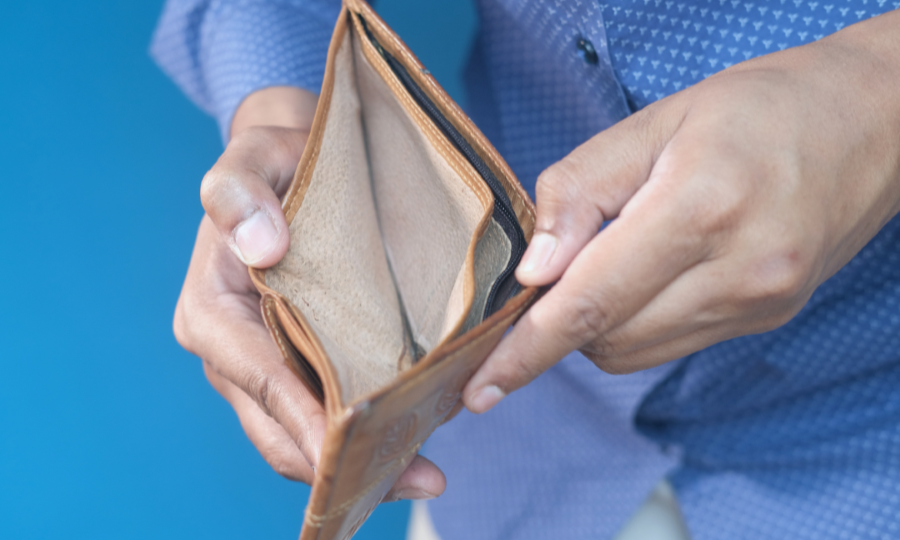Spotting debt traps
Recognising debt traps such as the ones listed below is a crucial step in avoiding debt and moving towards financial freedom. Debt traps might start small perhaps with a missed bill payment, relying on credit cards for daily expenses, or taking out a loan with high interest just to make ends meet. Over time, these habits can spiral and become unmanageable.
Credit cards
Credit cards can feel manageable until you realise you’re only paying the minimum each month and barely reducing the balance. This leads to long-term interest costs that makes everything you buy more expensive in the end. If you can, always aim to pay more than the minimum, even a small extra amount each month can shorten the repayment period and reduce the interest you’ll pay. Avoid using credit cards for non-essential spending, and regularly check your statements to keep on top of your balance.
Pay later
Buy Now, Pay Later schemes can seem like a smart short-term fix, but they’re surprisingly easy to stack up, especially across multiple retailers. It’s tempting to delay payment, but when several repayments fall due at once, it can become overwhelming. These services are still forms of credit, and missing payments can impact your credit score. Treat this payment option the same way you would treat a credit card: use it sparingly, only for essentials, and make sure you can afford the repayments before you commit.
Council tax
Council tax is a priority bill and ignoring it can quickly lead to enforcement action, court summons, or even bailiffs. If you’re struggling to pay, don’t ignore the letters or hope it’ll go away—your local council may be able to arrange a payment plan or offer financial support. It’s better to engage early and honestly rather than face more serious consequences later. Many councils have hardship funds or discretionary reductions for people in financial difficulty.
Store cards
Store cards may offer tempting deals, but they often have higher interest rates than credit cards. Balances can stack up fast, always prioritise repayments and clear them in full where possible.
Debt traps are often subtle and feel manageable until they’re not. The key to avoiding them is staying aware of your spending habits, understanding the terms of any credit you take on, and being proactive in addressing financial difficulties early. With small, consistent steps, you can stay in control of your finances and build a path toward lasting financial security.
Debt traps are often subtle and trick us into feeling they’re manageable when they sometimes aren’t. The key is spotting a debt trap and avoiding them. For more support on debt and debt advice please visit Money Helper’s Dealing with Debt page and Citizens Advice Birmingham
How to Spot and Avoid Common Debt Traps: A Guide to Financial Freedom

